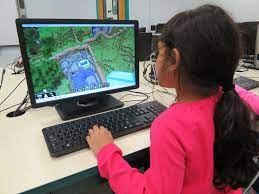
Game-based learning has emerged as a powerful tool in education, offering a dynamic way to engage students and enhance learning outcomes. The use of games can make learning more interactive and enjoyable, leading to better retention and application of knowledge. Here are seven tips to ensure game-based learning is effective and successful:
1. Align Games With Educational Goals: The most crucial aspect of game-based learning is that the content of the game should align with the educational objectives you wish to achieve. This means selecting or designing games that reinforce the skills or knowledge you are targeting.
2. Incorporate Feedback Mechanisms: Good games provide immediate feedback, which is essential for learning. This allows students to understand what they’re doing right or wrong during the game, giving them a chance to improve and learn from their mistakes in real-time.
3. Encourage Teamwork And Collaboration: Many games encourage group participation. Utilize games that support teamwork to build social skills like communication, negotiation, and collaboration, which are just as important as academic knowledge.
4. Use Games To Supplement Traditional Teaching: Game-based learning should not replace traditional educational methods but rather be used to supplement them. This ensures that students receive a well-rounded education that takes advantage of a variety of teaching methods.
5. Customize The Learning Experience: Whenever possible, choose or design games that can be customized for different skill levels and learners’ needs. Personalized experiences help keep all students engaged and challenged appropriately.
6. Make It Accessible And Inclusive: Ensure the chosen games are accessible to all students, including those with disabilities. This might involve considering the platform, controls, and content within the game to make sure it’s inclusive.
7. Measure The Outcomes: Just like any educational tool, it’s important to assess the effectiveness of your game-based approach. Use various assessment methods to evaluate if the games are meeting your educational goals and how well students are absorbing the material presented in the game setting.
Incorporating these tips into your strategy can greatly increase the chances of success in game-based learning endeavors, enhancing both engagement and educational outcomes for all learners involved.
